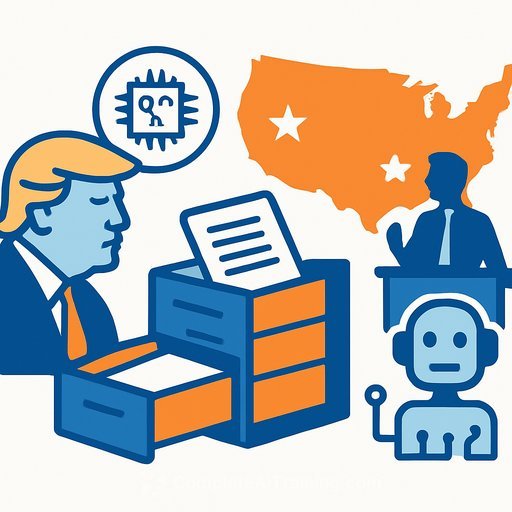Delaware AI Commission Approves Creation of Agentic AI Sandbox
The Delaware Artificial Intelligence Commission has approved a plan to develop a technology sandbox aimed at testing new agentic AI technologies and the regulations that govern them. This sandbox will provide a controlled environment to explore innovative AI tools, especially those capable of autonomous decision-making.
Delaware is focusing its initial efforts on the corporate governance sector, leveraging its status as a leading hub for corporations. The sandbox will allow officials to examine how agentic AI can be safely integrated into processes that involve raising capital or acquiring companies.
Exploring Agentic AI in Corporate Governance
Agentic AI systems have the ability to make decisions and take actions without human intervention. Delaware’s Secretary of State, Charuni Patibanda-Sanchez, noted that while such AI might be capable of activities like raising funds or purchasing companies, current policies require “human touches” for starting entities like limited liability companies (LLCs).
Patibanda-Sanchez raised important questions for the commission: Should the state allow agentic AI to incorporate LLCs? What efficiencies could this create for businesses? These questions highlight the need for careful evaluation within the sandbox framework.
A Collaborative Effort to Shape AI Regulation
The sandbox initiative follows a recent joint legislative resolution, signed by Delaware’s governor, which directs the AI Commission to work closely with the Secretary of State’s office. The goal is to create a regulatory and technological framework for safely testing agentic AI applications.
State Representative Krista Griffith, chair of the AI Commission and primary sponsor of the resolution, emphasized that this framework could eventually be applied to various sectors beyond corporate governance.
Commission member Patrick Callahan described the sandbox as a space where AI agents can be tested, observed, and approved with active involvement from regulators and the public from the outset.
State and Federal AI Policy Landscape
Delaware’s approach aligns with a broader trend among states to evaluate AI regulation carefully. For example:
- Colorado passed the Colorado Artificial Intelligence Act, effective in 2026, focusing on high-risk AI and preventing discrimination based on race, gender, disability, and other factors.
- California passed the Frontier Artificial Intelligence Models Act in 2023, which was later vetoed due to its broad scope.
At the federal level, the White House recently released an AI Action Plan advocating for expanded data infrastructure and a light regulatory touch. Meanwhile, a proposed federal ban on state-level AI regulations was removed from the recent federal budget reconciliation.
Balancing Innovation and Regulation
Experts like Adam Thierer from the R Street Institute caution that many state-level AI regulations risk becoming overly complex and bureaucratic. With nearly 1,100 AI-related bills pending across the U.S., including 240 in California, Colorado, Illinois, and New York alone, the regulatory landscape is diverse and evolving.
In Delaware, leaders see the sandbox as a smart way to leverage the state's size and reputation to stay competitive. Commissioner Molly DiBianca praised the initiative as an innovative use of Delaware’s resources, while Secretary Patibanda-Sanchez acknowledged the challenges but stressed the importance of proactive involvement.
Delaware’s sandbox could become a valuable model for other states aiming to test and refine AI regulations while encouraging practical AI applications in critical sectors like corporate governance.
Your membership also unlocks:






